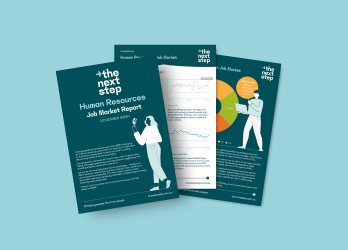Key legislative changes for HR in 2024
The IR landscape in Australia is undergoing significant changes that will reshape how we work in the years ahead. As an HR leader, staying informed and proactively adapting to these developments is crucial for supporting your organisation's success. However, the true challenge lies not just in achieving compliance, but in implementing changes that create genuine meaning and value within your workplace culture. Read on to better understand how you navigate the evolving workplace landscape.
Wage compliance & underpayment prevention
New wage theft laws, set to take effect in 2025, introduce tough penalties for intentional underpayments, including up to 10 years imprisonment and $7.8 million in fines. At a recent HR leaders forum hosted by The Next Step, MinterEllison Partners, Leyla Dixon and Deanna McMaster emphasised the importance of HR leaders seizing this opportunity to fortify their compliance practices.
To reduce risks, Dixon recommends conducting thorough payroll audits, investing in robust systems, and keeping detailed records. She explained, "If an employee comes to you and says they've been underpaid and you don't have the records, then the presumption is that they're right, because you don't have the evidence to prove otherwise."
Dixon also highlighted that large organisations with complex entitlements, outdated payroll systems, and/or manual HR processes are particularly vulnerable to underpayment issues.
The right to disconnect
The 'Right to Disconnect' aims to help employees achieve healthier work-life boundaries.
McMaster advises considering a wide range of factors when determining if an after-hours refusal is reasonable. These may include the nature of the employee's role, whether additional compensation is provided for extra work (this can include non-monetary compensation), personal circumstances to the extent known, and the nature of the business. "There's no one thing that determines what is and isn't reasonable and every case will be different. Consider all these factors and determine whether it's reasonable or not," she says.
Implement policies like email delays and disclaimers that respect the right to disconnect. Train managers on the expanded dispute mechanism through the Fair Work Commission (FWC). While model terms are still coming, get ahead by identifying roles likely to require out-of-hours contact. This as an opportunity to spark meaningful conversations about workload, expectations, and mental wellbeing. This will go a long way to encouraging a culture where people feel valued for their contributions, not just their hours.
Flexible work
The COVID-19 pandemic fundamentally changed ways of working, rapidly accelerating the shift towards flexibility. As employees increasingly prioritise work-life balance and organisations recognise the benefits of agility, HR leaders must navigate this new landscape with care.
Recent amendments to flexible work request laws have expanded eligibility and placed more onus on employers to engage in meaningful discussions and propose alternative arrangements. Dixon advocates collaboration with employees to find mutually beneficial arrangements and warns that employers can only refuse on reasonable business grounds.
In a 2023 decision, Ambulance Victoria v Fyfe, the Fair Work Commission found that Ambulance Victoria lacked reasonable grounds for rejecting a paramedic's request for flexible night shifts to accommodate her childcare responsibilities. The decision emphasised that employers can only refuse flexible work requests on genuine 'reasonable business grounds' and must engage in proper consultation with employees before making a decision.
Educate leaders on expanded union rights
Unions have gained expanded rights to enter workplaces, including the ability to bypass notice for suspected underpayments and obtain evidence. Managers must exercise caution in workplace discussions as delegates also have increased protections.
Frame this not as an 'us vs them' battle, but as a chance to strengthen employee voice and collaboration. Invest in management training that emphasises active listening, good faith engagement, and win-win problem-solving.
Partner with a skilled recruiter
With all these changes, demand is high for up-to-date legal advice and IR/ER specialists generalists with a strong grasp of the evolving landscape. "In this environment, partnering with a specialist HR recruiter is one of the smartest moves employers can make," advises Geraldine Doyle, The Next Step’s QLD Director. "Whether you need to find the right permanent hire to guide you through the changes, or bring in contractors for short-term support, we can connect you with the expert talent to protect your business and people."
Importantly, a great recruiter will look beyond technical skills to find candidates who align with your values and vision for a positive, people-centric workplace. They'll help you build IR expertise that not only keeps you compliant, but actively enhances your culture.
If you're an HR professional looking to advance your career, Doyle adds, "There are fantastic opportunities out there for those with the skills to navigate the new normal. We'd love to help you take the next step."
Seize the opportunity
The workplace landscape may be shifting rapidly, but with the right knowledge, strategies, and partners, HR can confidently lead the way forward. Embrace the change as an opportunity to not just follow the law, but to truly put people first. In a world of flux, that's the one constant that will always give your organisation the edge.
How can we help?
At The Next Step, we aim to help HR professionals adapt to these workplace changes. Through industry events, recruitment services, and networking opportunities, we support People & Culture leaders in implementing meaningful changes within their organizations.
If you need career advice, market updates, or staffing assistance, feel free to contact our team



